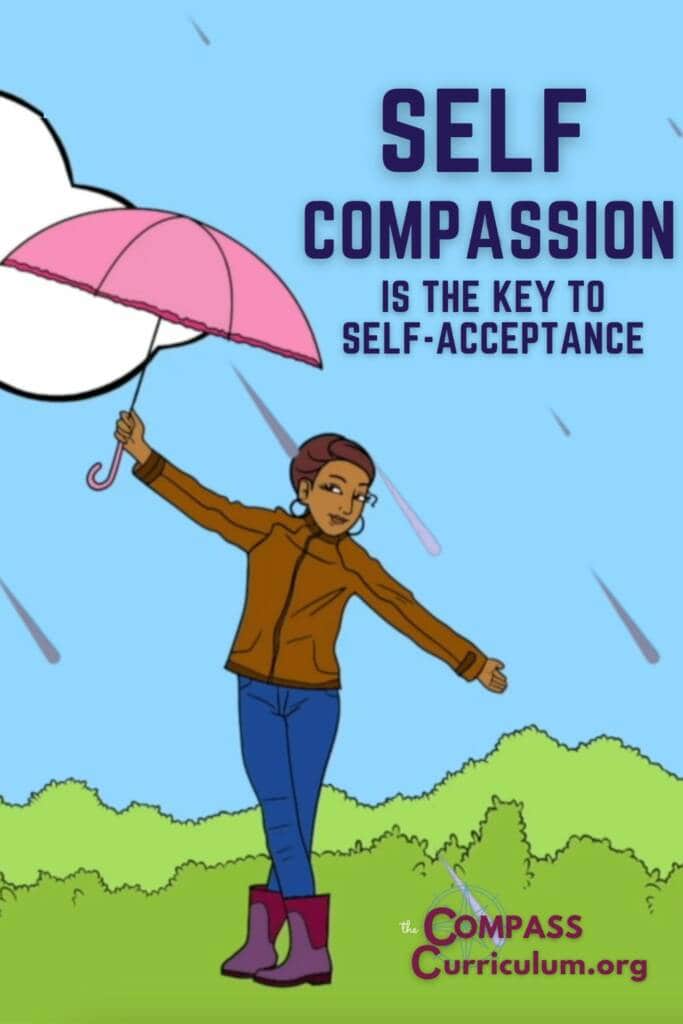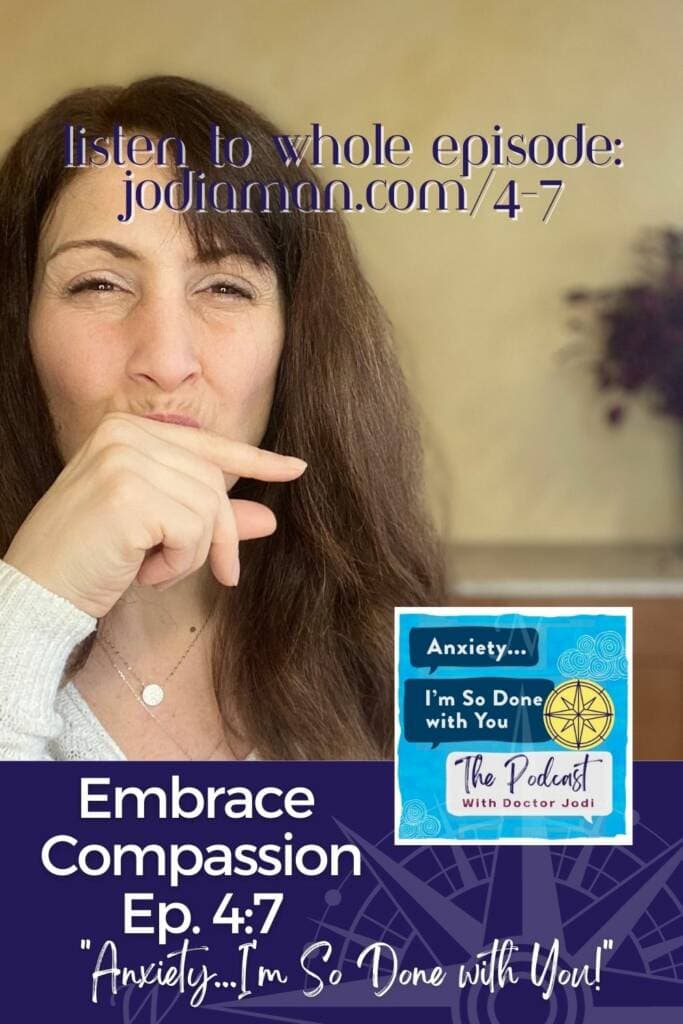We all need to learn self-compassion for our emotional wellness. Watch this video to see how to give compassion to yourself.
Self-compassion is a key ingredient in emotional wellness. It reduces stress and anxiety, supports a growth mindset, and improves relationships. Plus, it is easy to practice.
Then, why don’t you? Unrealistic American societal expectations enlist the mind to do the opposite of self-compassion: worry and assume you are inadequate, over-reacting, undeserving, and pointless. Your harsh inner critique can be very mean.
What makes it worse is that self-compassion is rarely honored, valued, and taught, leaving too many of us humans not knowing HOW to act compassionately to ourselves.
That barrier to emotional relief can be eliminated with the simple exercise in this video.
Here’s how to enact self-compassion. Whatever you feel, anything at all, sad, happy, angry, indignant, worried, interested, anything at all, you say, “I get it. I understand why I feel that.”
That might sound overly simple. However, what usually happens when you are hurt, pained, or disappointed is you say, “This doesn’t feel good.”
“I must be doing it wrong.”
“I don’t know how to do this.”
“Should I be over it by now?”
“Why is this so hard for me?”

Stop Negative Self-Judgments
Negative self-judgments can come when you are pleased, commended, or complimented. For example, your mind automatically goes to, “No, I’m not. It was easy. Anyone can do it. I shouldn’t get attention. People are going to think I just want attention.”
In essence, you are not “allowed” yourself to FEEL your regular human reaction to the situations in your life.
When you cultivate self-compassion, everything changes. Whatever you feel, the joy, upset-ness, fear, hurt, relief -anything at all that you feel – Say, “That makes sense why I feel that way.’
When you judge your emotions, they stick to you more firmly. Without the judgment, you don’t attach and can process them, and they can fade away.
Stop being so harsh with yourself. Stop beating yourself up and doubting every regular human reaction that you have. Be kinder, more understanding, and more accepting of your feelings. Not only do you deserve it, but also you’ll feel so much better.
Podcast Episode about Self-Compassion
Embrace Compassion and Love for Yourself! Podcast Ep. 4:7

More about self-compassion
Self-compassion is the practice of treating yourself with the same kindness, care, and understanding that you would offer to a friend or loved one. It involves acknowledging your own suffering, avoiding self-criticism, and nurturing a sense of warmth and self-acceptance. Here are three steps to help you cultivate self-compassion:
Remember that self-compassion is a skill that takes practice and patience. It’s okay to have moments when you struggle with self-criticism or find it challenging to be compassionate towards yourself. Be patient with yourself during this process and keep working on developing self-compassion as a lifelong practice. Over time, it can lead to greater emotional well-being and resilience.
It sounds simple, but we usually say that what you feel is a regular human reaction to the situation, so stop judging it harshly if it makes you feel bad.
Self-Kindness:
Recognize Self-Criticism:
Start by becoming aware of your inner critic and the negative self-talk that can often dominate your thoughts. Pay attention to the way you speak to yourself, especially when you make mistakes or face challenges.
Challenge Negative Thoughts:
When you catch yourself engaging in self-criticism, challenge those thoughts. Ask yourself if you would speak to a friend in the same way. Often, you’ll find that you’re much harsher on yourself than you would be to others.
Practice Self-Kindness:
Replace self-criticism with self-kindness. Treat yourself with the same compassion you would offer to a friend. Use gentle and encouraging words when you talk to yourself. For example, instead of saying, “I’m so stupid for making that mistake,” say, “It’s okay; everyone makes mistakes sometimes, and I can learn from this.”
Acknowledge Your Shared Humanity:
Understand that suffering and imperfection are part of the human experience. Everyone makes mistakes, faces challenges, and experiences pain at various points in their lives. Recognizing that you are not alone in your struggles can help reduce feelings of isolation and self-judgment.
Connect with Others:
Share your experiences and feelings with trusted friends, family members, or support groups. This connection can provide validation and support, reinforcing the idea that others have faced similar challenges.
Mindfulness:
Be Present with Your Emotions:
Mindfulness involves paying non-judgmental attention to your thoughts and emotions. When you’re experiencing difficult emotions or self-criticism, take a moment to acknowledge and accept what you’re feeling without trying to suppress or deny it.
Practice Self-Compassion Meditation: Engage in mindfulness practices specifically designed to cultivate self-compassion. These meditations often involve guided exercises that encourage self-kindness and acknowledging common humanity.
Dr. Jodi, your insights on self-compassion are transformative. The simple yet powerful exercise you share breaks the chains of self-criticism. Embracing our emotions without judgment is a true act of kindness to oneself. Grateful for your guidance in fostering emotional wellness.